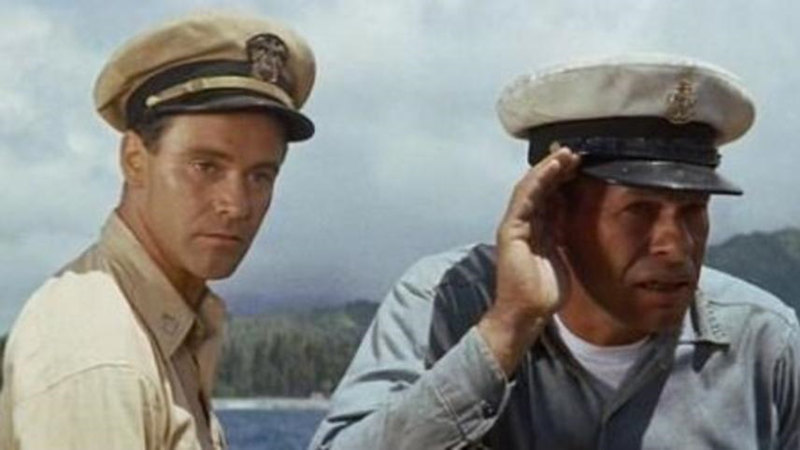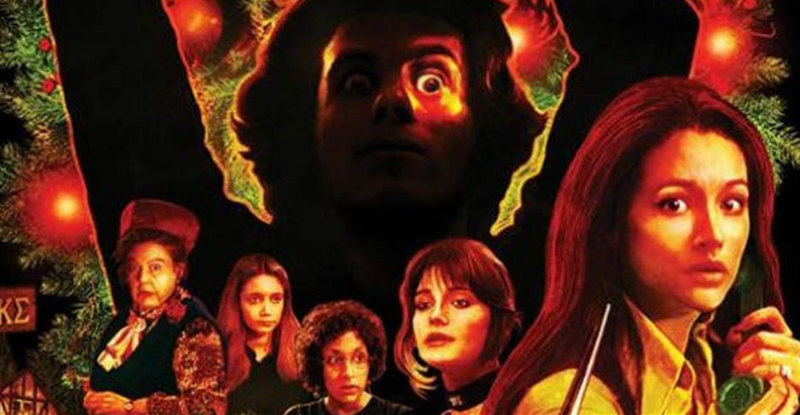There are two Hitchcocks, really.
First, there’s the one who’s taught in film classes. Alfred Hitchcock directed 67 films, and not one of them—not “Rebecca,” not “Notorious,” not “Strangers on a Train,” not “Dial M for Murder,” not “Rear Window,” not “The Man Who Knew Too Much,” not “Vertigo,” not “North by Northwest,” and certainly not “Psycho” or “The Birds”—earned him an Academy Award for director or Best Picture, despite being serious, suspenseful dramas. Eventually the Academy would break down and give him (grudgingly, one senses) an honorary Oscar—the Irving G. Thalberg Memorial Award—in 1968 as his health was failing, because there was no denying that Hitchcock had amassed an impressive body of work.
But it was a different Hitchcock that greeted TV audiences from 1955 to 1962 with “Good Evening” and deliberately played a slightly caricatured or campy version of himself as the host of “Alfred Hitchcock Presents.” The short story anthology contained almost as much tongue-in-cheek humor or black comedy as suspense or elements of the supernatural, and the portly Hitchcock appeared to be having a great time introducing and offering closing remarks—almost as much as he appeared to relish wearing the title “Master of Suspense.” This Alfred Hitchcock was an overly dramatic ham who delighted in posturing and having fun with horror and suspense in his half-hour series.
It’s the second, more playful and caricatured Hitchcock that we get from screenwriter John J. McLaughlin (“Black Swan”) and director Sacha Gervasi (“Anvil: The Story of Anvil”) in “Hitchcock,” a film that inspired the same uneven response as the rotund one received during his lifetime. It barely earned a “fresh” rating at Rotten Tomatoes, and caused more than a few critics to snub their noses at Anthony Hopkins’ portrayal of Hitchcock for being “scenery chewing.”
I’d invite those critics to rewatch “Alfred Hitchcock Presents.” The Hitchcock Americans saw on TV was indeed a scenery-munching actor who savored every bite. It was all in good fun, and so is this film, which is based on the book Alfred Hitchcock and the Making of Psycho, by Stephen Rebello. Hopkins captures the TV Hitchcock perfectly, even down to the cadences and dramatic pauses that the director used for effect. And for the fun of it, the filmmakers have Hitch introduce the movie and comment at film’s end, treating the film itself like an episode of “Alfred Hitchcock Presents.”
Helen Mirren is perfectly cast as Hitchcock’s wife Alma, with whom he often collaborated. As Alma she projects the kind of warmth and down-to-earth, rooted-in-reality foil that Hitchcock needed to keep him grounded. She can “handle” him in ways that the studio chiefs or actors or crew can only dream of.
Like “My Week with Marilyn,” which offered a behind-the-scenes look at Monroe during filming of “The Prince and the Showgirl,” “Hitchcock” follows the Master of Suspense as he settles on, fights for, and finally bankrolls “Psycho” because he was intrigued by the challenge: “What if somebody really good made a horror picture?” An additional challenge was to make it on the cheap—something that became necessary when Hitchcock had to mortgage their home to personally finance the film after the studios turned him down. Adding to the tension was trouble on the home front between Alma and him, with a former writing partner (Danny Huston) looming as a threat to their marriage, and Hitch’s own flirtations with every blonde actress who’ll pay attention to him emerging as a contributing factor.
Scarlett Johansson does a fine job as Janet Leigh, though she isn’t nearly the dead-ringer that James D’Arcy is in playing Anthony Perkins—the two stars of “Psycho.” And Toni Collette makes the most of her screen time as Hitchcock’s assistant, Peggy. Mostly, though, it’s as the title says: “Hitchcock,” with the focus on Hopkins and the relish he has playing him, and the equal delight that Gervasi obviously takes in trying to replicate the look of Hitchcock films from the late ‘50s and early ‘60s.
Scenes in which Hitchcock hallucinates or gets lost inside his mind talking with mass murdered Ed Gein, upon which the book Psycho was based, can come across as seeming just a little hokey, but those moments are deftly balanced by some real emotion-packed scenes that depict how Hitchcock shot the film, or how he bamboozled theaters into helping him promote the film in a big way.
“Hitchcock” is rated PG-13 for some violent images, sexual content, and thematic material. Women are seen in underwear and there’s a suggestion of nudity or sex, but nothing graphic. Same with the violence, really. The most frightening scene doesn’t have any blood at all.
Video:
In terms of color palette and the slight layer of filmic grain, “Hitchcock” closely resembles films of the time in which it is set. Black levels are wonderfully inky, though, so as to preserve detail in the shadows. I saw no compression problems as a result of the AVC/MPEG-4 transfer (32MBPS). Aspect ratio: 2.40:1.
Audio:
It’s amazing how compatible Danny Elfman’s playful score is with the original theme song from “Alfred Hitchcock Presents,” which opens the film. Yet during moments of suspense the music rises to the occasion. The rear speakers aren’t quite as active as I would have imagined in some of the scenes, but for the most part the English DTS-HD MA 5.1 audio is powerful enough to push the sound away from the speakers and the corners of the room.
Additional audio options are in English Descriptive, French, and Spanish Dolby Digital 5.1, with subtitles in English SDH and Spanish.
Extras:
This combo pack includes a Blu-ray, DVD, Digital Copy, and UV Copy. If you’re wondering whether Hopkins and the filmmakers nailed it, start with “Remembering Hitchcock,” a five-minute round-up of people who worked with Hitchcock and talk about the film’s level of accuracy. There’s more of that in “Becoming the Master: Hopkins to Hitchcock,” a 12-minute affair in which Hopkins and his director talk about what they were trying to accomplish.
Perhaps the best extra is “Obsessed with Hitchcock,” a 29-minute making-of feature that covers all aspects of adaptation, pre-production, shooting, and post-production. There’s some overlapping, and so one suspects that a handful of shorter featurettes were perhaps outtakes from this documentary: a deleted scene, “The Story” (on book-to-film), a Hitchcock in-character PSA against cell phones in theaters, “The Cast” (on casting), “Danny Elfman Maestro” (the score), and “Hitch and Alma.” Rounding out the bonus features are an audio commentary with the director and author Stephen Rebello and some 13 minutes of raw behind-the-scenes footage captured by the director on his cell phone.
Bottom line:
Hopkins has to be wondering why everyone fell all over themselves praising Daniel Day-Lewis for his “uncanny” portrayal of Lincoln, while his equally uncanny portrayal of the caricaturish Hitchcock was ignored or panned. I’m wondering too. Hopkins’ performance makes “Hitchcock” as much fun as one of the old episodes from “Alfred Hitchcock Presents.”


